SUPPORTING PROGRAMMES
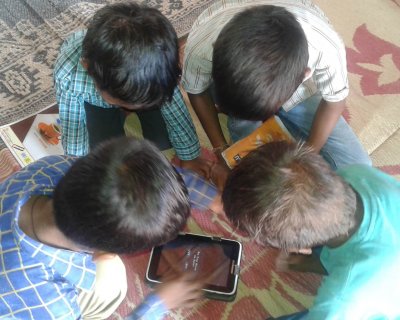
English Learning
A combination of comprehensible input/print-rich environments and more explicit language instruction are important for learning English. The English programme implements this approach, while remaining sensitive to available resources, and varying needs and skill levels of students (as well as of the teachers). GSK teachers have tried and tested this approach in Uday classrooms and noticed a significant improvement in the learning level of children. We look forward to emulating this progress in our Vistaar intervention schools. The crux of English teaching at Uday is a theme-based approach; contextually relevant themes are decided upon every month, and students’ reading, speaking and writing are worked on based on the chosen theme. The resource teacher provides support to their peers, through assistance in lesson planning, execution and reflection. During mentorship sessions, teachers are given tasks to enhance their own capacity and are encouraged to take initiative.
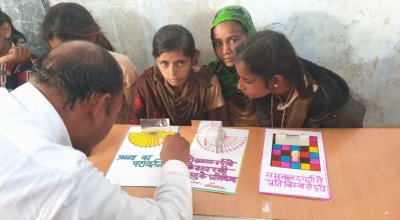
STEAM Education
GSK established a STEAM (Science, Technology, Engineering, Arts, Mathematics) Laboratory in 2017 at Bodal village, for demonstrating research and activity-based learning, while emphasizing on quality in STEAM education at the surrounding government schools. The initiative has become a critical component of the Vistaar programme and has provided opportunities for exposure to our Umang Programme cohorts. We intend to setup two more such resource labs for the government schools in the district.
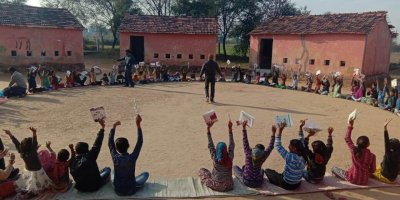
Sports
More than 500 children from Uday and Vistaar government schools have played at block, district, state and national-level sports tournaments. 35 Uday Schools alumni have been selected for sports academies to help them enhance their sporting talents. Notably, our girls are four time district Handball champions. Sports have encouraged girls to attend school, travel outside their village to participate in tournaments, and realize their agency.
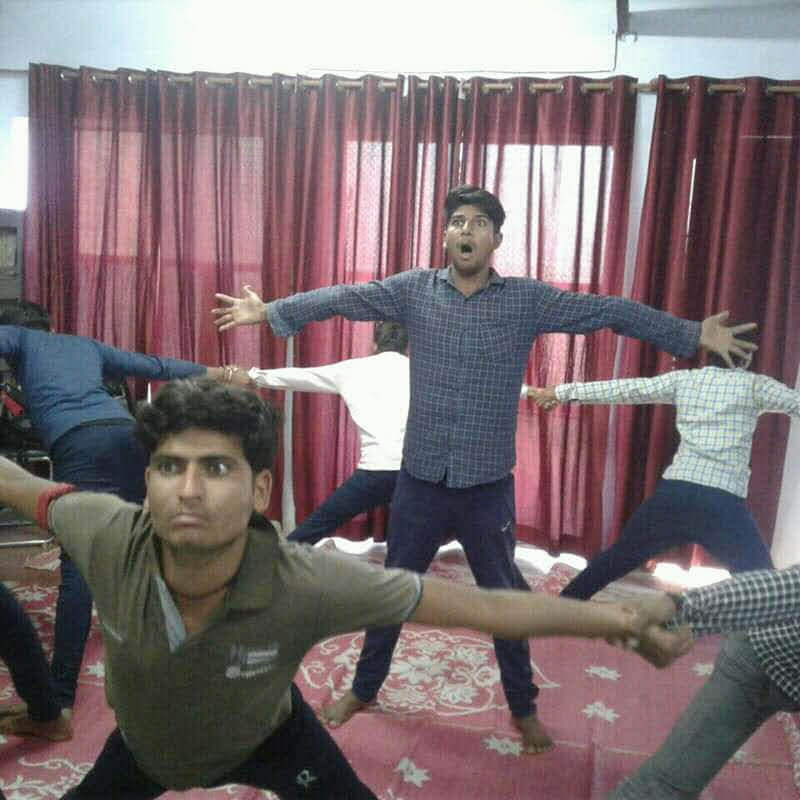
Forum Theatre- Theatre of the oppressed
Theatre of the Oppressed (TO) is a form of popular community-based education that uses theatre as a tool for social change. Forum Theatre, a TO technique, explores unresolved scenes of oppression, which are replayed with the audience invited to stop the action, replace the character they feel is oppressed, struggling or lacking power, and improvise alternative solutions. The audience is thus transformed from mere spectators, to ‘spectactors’, allowing them to practically visualise a better future with liberation consciousness. In partnership with Jana Sanskriti, a grassroots theatre organisation from West Bengal that pioneered the advent of TO in India, GSK has formed and trained a theatre troupe comprising of young local community volunteers. They perform with the aim of creating spaces for dialogue on critical issues such as displacement & rehabilitation, the importance of educating girl children, child marriage, etc., across communities and our key programmes, and have already done so at locations in over 20 villages. We continue to expand our efforts, with special emphasis on recruiting more young girls and women into our troupe and elicit greater participation from them during community performances.
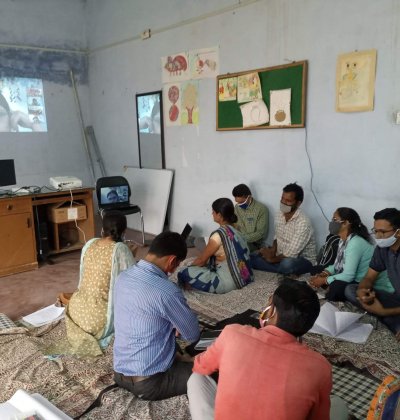
Capacity Building of Our Team
English Programme: The crux of English teaching at Uday is a theme-based approach; contextually relevant themes are decided upon every month, and students’ reading, speaking and writing are worked on based on the chosen theme. The resource teacher provides support to their peers, through assistance in lesson planning, execution and reflection. During mentorship sessions, teachers are given tasks to enhance their own capacity and are encouraged to take initiative.
Online Training: Teachers attend a plethora of workshops online- for example, training in life skills development by an external resource person, in participatory & activities-based STEM teaching and Dance Movement Therapy, in collaboration with Avishkaar and Kolkata Sanved, respectively, and peer learning sessions led by the teachers themselves.
Improvement of Technical Know-How Post-COVID: The times have demanded a shift to virtual modes of communication, with training and team-meetings taking place via video-call, and building and sharing of study material taking place digitally. This has provided our teachers the opportunity to enhance their capacity when it comes to basic technical know-how.
